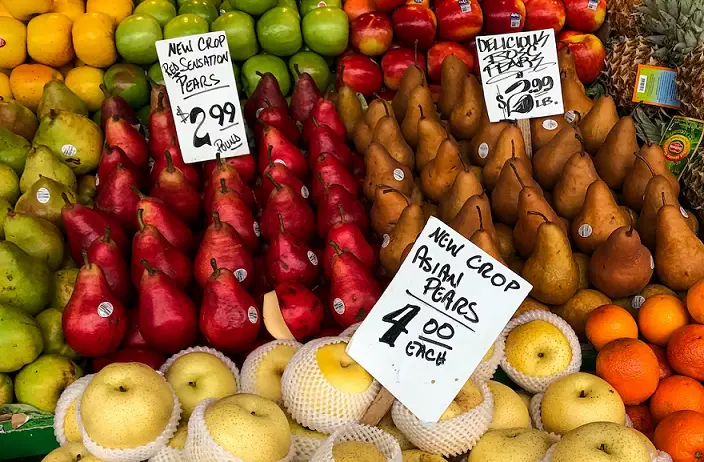According to a new report from the British Retail Consortium, as the British economy continues to be wracked by record levels of inflation, British households are suffering with a record level of food price inflation.
The trade body, which represents UK supermarkets, reported on Tuesday that fresh food prices skyrocketed 17.8% in April year over year, as so-called “cupboard” items, including canned goods, rose 12.9%.
Prices rose by 8.8% last month according to the BRC-NielsenIQ shop price index, compared to the same time last year, which was a slight drop from March’s 8.9% reading.
BRC chief executive Helen Dickinson said, “Overall shop price inflation eased slightly in April due to heavy spring discounting in clothing, footwear and furniture. However, food prices remained elevated given ongoing cost pressures throughout the supply chain.”
Dickenson added the some items, such as ready meals, are experiencing price increases due to a “knock-on effect” from higher production and packaging costs.
Meanwhile, Mike Watkins, the chief of retail and business insight at NielsenIQ, pointed out that as Inflation has yet to peak, and with sales volumes on the downswing, “it’s difficult to second guess the strength of consumer confidence.”
Last month the official figures showed that Britain’s rate of inflation was easing slightly, but still remained above 10%, as food and drink costs hit a 45 year high.
New figures from the Trussell Trust charity note that nearly three million emergency food rations have been dispensed at British food banks over the previous year, as the number provided to children exceeded a million for the first time on record.
Huw Pill, the chief economist at the Bank of England, said earlier that as inflation sweeps across Europe, British households will need to simply accept that they are poorer, and they need to stop asking for wage increases and adding to the inflationary pressures driving prices higher.

